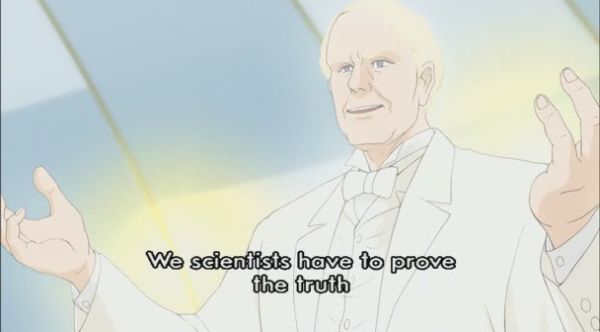Preferably as quiet as this. Screenshot from the exceedingly family-friendly anime Kimi ni Todoke (Reaching You), which is not actually sponsored by Happy Science, strangely enough. It is not the happiness that is lacking, at least.
The December issue of Happy Science’s monthly magazine is out. It is mostly about childhood and its enduring influence on your life, and about how you can (and should) look back at your childhood with new eyes and seek to understand your family and yourself as you were at that age. Things that seemed pure bad at the time may make sense now, if you look at it from a much higher perspective than you could then. In this way, you transform your past, and thereby your present and your future.
I have already done some of this before, but I don’t remember all that much about my childhood (except the dirty jokes I read in my brothers’ magazines. It is amazing how well I can remember those after 40 years. I must have a “pornographic memory”.) Anyway, it is said that when you have children of your own, you remember things from your own childhood that you otherwise would have forgotten. Because you have to deal with the same things that your parents had to deal with, and you remember how they did it, and perhaps when you do the same thing to your children you remember how much you hated it and it gives you pause.
I don’t have children so I will probably continue to not remember much other than the books I read. Actually I am not sure I did much at all except reading books (and my brothers’ magazines) and play alone by the streams. Oh, and go to school and taunt the bullies, who would then proceed to beat me up, making me angry so I would taunt them again on the next opportunity. An endless dance or mutual arrogance. But that part of me has already been transformed by self-reflection, which is one reason why there is less hell in me these days than there used to be.
Anyway! More quiet revolutions! The Happy Science Monthly also has an excerpt from a lecture by Ryuho Okawa, the would-be Buddha of our age. “When we first started, we could not even imagine taking responsibility for the happiness of all humanity. However, today, I strongly feel that it is our mission to spread our message across Japan and the world; it is our mission to guide all people to happiness.” Yes, wouldn’t that be nice, if they could guide all people to happiness! There are still almost 7 billion left though, compared to the perhaps 10 million they have supposedly guided to some degree of happiness so far. Keep up the good work!
I am not being entirely flippant there. I may not actually believe that Mr Okawa is a god from Venus, but I do think that if somehow his teachings come to influence the majority of people, we would definitely enter a golden age the like of which has not been seen in recorded history. Love, wisdom, self-reflection and progress is good stuff. Unfortunately, I am all too aware that most people have very different priorities from that, so it won’t be easy. Jesus Christ still has not reached all the world after around 2000 years. And most of us who have heard him haven’t understood much of what he said. So, it is a long canvas to bleach, as we say around here!
Mr Okawa remains optimistic, though. “We are now in the midst of creating a quiet but sure revolution, which will influence neighboring countries, Asian nations, Africa, Europe, and America. By spreading the spiritual Truths, we are gently undoing the mistaken values of today’s society. We are bringing this world back to the world of Truth, where it came from.”
Quiet Revolution? That sounds familiar:
“There’s a quiet Revolution going on,
Like a fire in every corner of the world,
And friends that you have known for many years,
Are talking with a new light inside,
Talking with a brightness in their eyes”
…
“There are quiet celebrations going on,
So many have been waiting for so long,
To see the whole world waking from a dream,
And find a new dimension inside,
See a revelation in our time,
Something is coming now,
Something is coming now.”
-Chris de Burgh, fromQuiet Revolution.
Unfortunately it will probably take some time still for the whole world (or even the reasonably civilized world) to wake from its dream. But quiet revolution is definitely the way to go.










